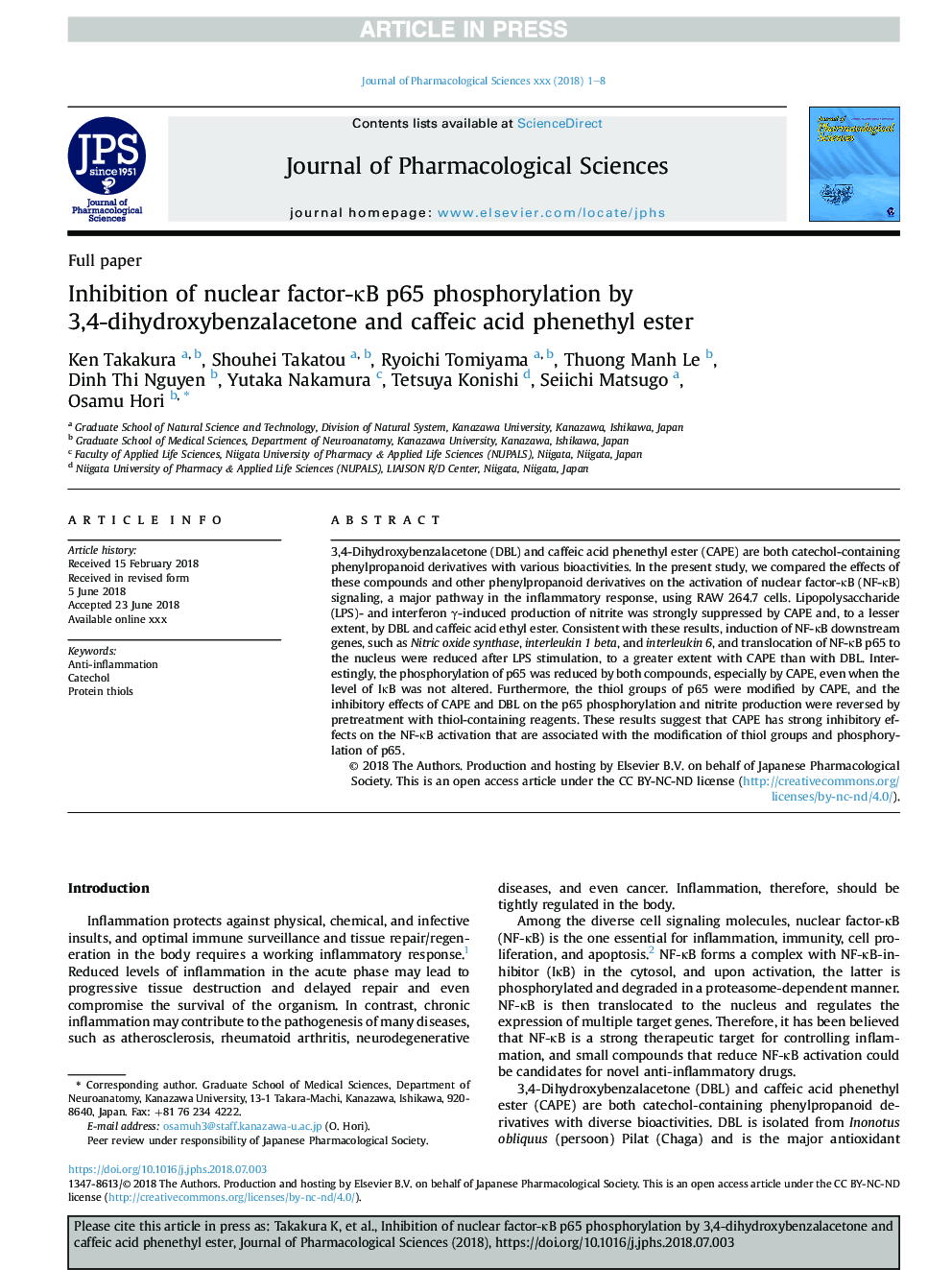| Article ID | Journal | Published Year | Pages | File Type |
|---|---|---|---|---|
| 8950118 | Journal of Pharmacological Sciences | 2018 | 8 Pages |
Abstract
3,4-Dihydroxybenzalacetone (DBL) and caffeic acid phenethyl ester (CAPE) are both catechol-containing phenylpropanoid derivatives with various bioactivities. In the present study, we compared the effects of these compounds and other phenylpropanoid derivatives on the activation of nuclear factor-κB (NF-κB) signaling, a major pathway in the inflammatory response, using RAW 264.7 cells. Lipopolysaccharide (LPS)- and interferon γ-induced production of nitrite was strongly suppressed by CAPE and, to a lesser extent, by DBL and caffeic acid ethyl ester. Consistent with these results, induction of NF-κB downstream genes, such as Nitric oxide synthase, interleukin 1 beta, and interleukin 6, and translocation of NF-κB p65 to the nucleus were reduced after LPS stimulation, to a greater extent with CAPE than with DBL. Interestingly, the phosphorylation of p65 was reduced by both compounds, especially by CAPE, even when the level of IκB was not altered. Furthermore, the thiol groups of p65 were modified by CAPE, and the inhibitory effects of CAPE and DBL on the p65 phosphorylation and nitrite production were reversed by pretreatment with thiol-containing reagents. These results suggest that CAPE has strong inhibitory effects on the NF-κB activation that are associated with the modification of thiol groups and phosphorylation of p65.
Related Topics
Health Sciences
Pharmacology, Toxicology and Pharmaceutical Science
Pharmacology
Authors
Ken Takakura, Shouhei Takatou, Ryoichi Tomiyama, Thuong Manh Le, Dinh Thi Nguyen, Yutaka Nakamura, Tetsuya Konishi, Seiichi Matsugo, Osamu Hori,
